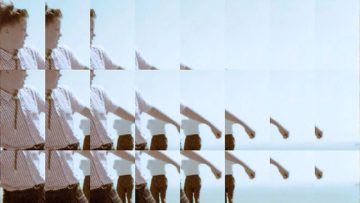Martha Henriques at the BBC:
 The issue is that Newton’s laws work about twice as well as we might expect them to. They describe the world we move through every day – the world of people, the hands that move around a clock and even the apocryphal fall of certain apples – but they also account perfectly well for a world in which people walk backwards, clocks tick back afternoon to morning, and fruit soars up from the ground to its tree-branch.
The issue is that Newton’s laws work about twice as well as we might expect them to. They describe the world we move through every day – the world of people, the hands that move around a clock and even the apocryphal fall of certain apples – but they also account perfectly well for a world in which people walk backwards, clocks tick back afternoon to morning, and fruit soars up from the ground to its tree-branch.
“The interesting feature of Newton’s laws, which wasn’t appreciated till much later, is that they don’t distinguish between the past and the future,” says the theoretical physicist and philosopher Sean Carroll, who discusses the nature of time in his latest book The Biggest Ideas in the Universe. “But the directionality to time is its most obvious feature, right? I have photographs of the past, I don’t have any photographs of the future.”
The problem is not confined to the centuries-old theories of Newton. Virtually all of the cornerstone theories of physics since then have worked just as well going forward in time as they do backwards, says physicist Carlo Rovelli of the Centre for Theoretical Physics in Marseille, France, and the author of books including The Order of Time.
More here.
